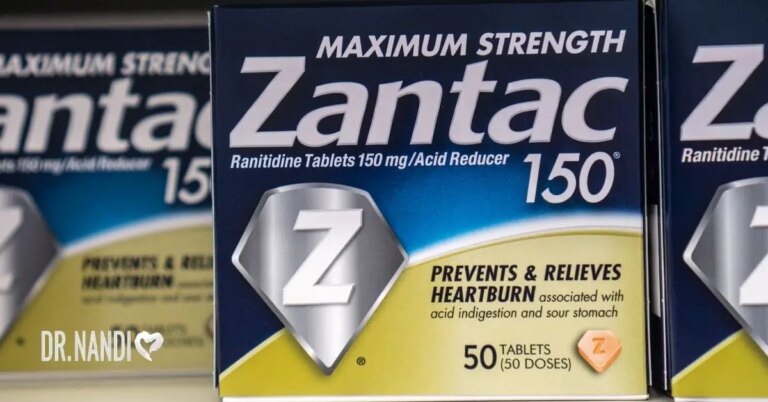The lymphatic system, often overshadowed by the cardiovascular system, plays a crucial role in our overall health. This complex network of vessels, nodes, and fluids stretches throughout the body, acting as a sophisticated waste removal system. As with any crucial system in our bodies, maintaining its health is essential.
If you are feeling sluggish, frequently ill, or struggling with stubborn weight gain, these could be signs of a clogged lymphatic system. In this article, we will explore the signs that indicate a congested lymphatic system and delve into effective ways to cleanse and rejuvenate it.
Understanding the Lymphatic System
The lymphatic system comprises lymph vessels, lymph nodes, and lymph fluid. The fluid is a combination of water, proteins, salts, fats, and white blood cells gathered from across the body. Think of it as a drainage system and waste disposal network that collects body fluids, then filters them through the lymph nodes.
As the fluid moves through these nodes, white blood cells attack any viruses or bacteria present. These are lymphocytes, a component of our immune system that releases antibodies to combat invading germs, fungi, bacteria, and viruses. In the end, the system expels waste through various processes: sweating, urination, respiration, and bowel movements. The spleen, a component of the lymphatic system, also plays a role in filtering the blood and replacing old blood cells with new ones.
The lymphatic system doesn’t have a central pump, like the heart in the circulatory system. As a result, taking active steps to keep your lymph fluid flowing healthily is fundamental to preventing harmful toxins from accumulating.
The Consequences of an Inefficient Lymphatic System

When the lymphatic system isn’t operating optimally, it can disrupt the body’s balance. The absence of a central pump to move lymph fluid, like the heart in the circulatory system, can lead to clogs in the network. Various factors can impede lymph flow, such as insufficient physical activity, a diet abundant in processed and fatty foods, and nutrient deficiencies. [1,2]
Given the lymph nodes and vessels’ crucial role in detecting and eradicating cancer cells, ensuring their proper functioning is of utmost importance. A sluggish or backed-up lymphatic flow can manifest as various symptoms:
- Skin conditions (like itching or acne)
- Digestive disorders
- Sinus infections and mucus build-up
- Arthritis
- Excess weight or difficulty losing weight
- Chronic fatigue
- Frequent headaches
- Lymphedema (swelling in one arm or leg)
The importance of maintaining lymphatic health is underscored by statistics that highlight the impact of lymphatic dysfunction. With 6 million cases in the United States, lymphedema is a prevalent condition. However, on a global scale, the numbers are staggering, with an estimated 200 million individuals suffering from lymphedema. [3]
Furthermore, poor lymphatic function can increase the risk of various health issues, including cancer and immune disorders. [4,5,6]
10 Strategies & Health Tips to Maintain Lymphatic Health
To keep your lymphatic system healthy and functioning optimally, consider integrating the following practices into your daily routine:
- Drink plenty of water: Hydration is vital to ensuring the lymph fluid flows smoothly. Scientists recommend about 91 ounces daily for women and 125 ounces daily for men. [7]
- Stay active: Muscle contractions aid lymph flow and drainage. Engage in activities that involve stretching, yoga, walking, or jumping to stimulate the system. [2]
- Practice deep breathing exercises regularly: Deep breathing acts as another pumping action that helps lymph fluid flow. Take time to sit and engage in deep, slow, mindful breaths to encourage circulation. [8]
- Consume lymph-friendly foods: Nutrient-rich whole foods, such as leafy greens, vegetables, garlic, avocado, cranberries, beets, almonds, and walnuts, support the lymphatic system.
- Drink lymph-promoting herbal teas: Herbal blends with echinacea, astragalus, goldenseal, cilantro, and wild indigo root can benefit your lymphatic system and encourage the flow of lymph fluid.
- Avoid lymph-inhibiting foods: Limit consumption of processed foods, artificial sweeteners, and sugar, as these can hamper lymph function.
- Alternate hot and cold showers: Hydrotherapy, which involves alternating between hot and cold water, helps blood vessels dilate and contract, thereby promoting lymph vessels’ circulation. If you’re pregnant or have heart disease, exercise caution with this practice. [9]
- Engage in dry brushing: Using a stiff, natural bristle brush, rub the skin in circular motions, moving from your extremities towards your heart. This action stimulates circulation and is conveniently done before a shower.
- Avoid exposure to toxic substances: Toxic substances such as pollutants and pesticides can increase your body’s toxic load, so avoid these as much as possible.
- Manage your stress: Stress management through meditation, exercise, and yoga can reduce toxicity in the body, reducing the burden on your lymphatic system.

My Personal RX: A Doctor’s Recommendations for a Healthy Lymphatic System
As a doctor, I’m often asked about the best ways to maintain a healthy lymphatic system. Based on my clinical experience and current research, here are my personal recommendations.
- Holistic Approach: Aim for a lifestyle that encourages overall well-being. This includes regular exercise, adequate hydration, and a nutrient-dense diet, with an emphasis on fresh fruits, vegetables, and lean proteins. This holistic approach not only supports your lymphatic system but also enhances your general health.
- Support Muscle Contractions and Cellular Energy: Since your lymphatic system relies on muscle contractions to move lymph fluid, ensuring optimal muscle function is essential. Magnesium Essentials provides three forms of highly absorbed magnesium that support ATP production for cellular energy, reduce inflammation in the body, and help muscles contract efficiently to keep lymph flowing.
- Use a Rebounder: Rebounding is an excellent low-impact exercise that supports the lymphatic system. The up-and-down bouncing motion effectively stimulates the flow of lymph fluid throughout the body, aiding in detoxification. Regular sessions on a rebounder can also enhance overall fitness, balance, and coordination, making it a fun and beneficial addition to your fitness routine.
- Lymphatic Drainage Therapy: This specialized therapy uses gentle, rhythmic strokes to stimulate lymph flow and detoxification. It’s a powerful tool for maintaining lymphatic health but should always be performed by a certified practitioner.
- Stress Management: Chronic stress can impair the lymphatic system’s function. Adopt stress management techniques such as yoga, meditation, and deep-breathing exercises.
To aid you further in this journey towards improved health, I recommend downloading a free copy of my Protocol. This 50-page step-by-step guide offers comprehensive guidance on how to make significant changes to your health and life — consolidating my years of research and experience into an accessible format you can implement at your own pace.
Furthermore, I encourage you to consider my Detox Bundle, specifically designed to support the detoxification process. It includes a Liver Support supplement to enhance your body’s natural detoxification pathways and the Fiber Complete supplement to facilitate waste elimination. This bundle complements the lifestyle modifications outlined above, providing a comprehensive approach to maintaining your lymphatic system’s health.
Please remember that these recommendations are intended to support your health, but they are not a replacement for medical advice. Always consult with a healthcare professional before making any significant changes to your health regimen.

Sources:
- Blum KS, Karaman S, Proulx ST, et al. Chronic high-fat diet impairs collecting lymphatic vessel function in mice. PLoS One. 2014;9(4):e94713. Published 2014 Apr 8. https://doi.org/10.1371/journal.pone.0094713
- Hespe GE, Kataru RP, Savetsky IL, et al. Exercise training improves obesity-related lymphatic dysfunction. J Physiol. 2016;594(15):4267-4282. https://doi.org/10.1113/JP271757
- Mehrara, B. J., Coriddi, M., Dayan, J., & Kataru, R. (2022). Lymphedema: Anatomy, Pathophysiology, Evaluation, and Treatment. In Plastic Surgery-Principles and Practice (pp. 666-683). Elsevier. https://doi.org/10.1016/B978-0-323-65381-7.00044-7
- Mumprecht V, Detmar M. Lymphangiogenesis and cancer metastasis. J Cell Mol Med. 2009;13(8A):1405-1416. https://doi.org/10.1111/j.1582-4934.2009.00834.x
- Padera TP, Meijer EF, Munn LL. The Lymphatic System in Disease Processes and Cancer Progression. Annu Rev Biomed Eng. 2016;18:125-158. https://doi.org/10.1146/annurev-bioeng-112315-031200
- Xu JQ, Liu QQ, Huang SY, et al. The lymphatic system: a therapeutic target for central nervous system disorders. Neural Regen Res. 2023;18(6):1249-1256. https://doi.org/10.4103/1673-5374.355741
- Products – Data Briefs – Number 242 – April 2016. (n.d.). https://www.cdc.gov/nchs/products/databriefs/db242.htm
- Vaqas B, Ryan TJ. Lymphoedema: Pathophysiology and management in resource-poor settings – relevance for lymphatic filariasis control programmes. Filaria J. 2003;2(1):4. Published 2003 Mar 12. https://doi.org/10.1186/1475-2883-2-4
- Tidhar D, Katz-Leurer M. Aqua lymphatic therapy in women who suffer from breast cancer treatment-related lymphedema: a randomized controlled study [published correction appears in Support Care Cancer. 2010 Mar;18(3):393]. Support Care Cancer. 2010;18(3):383-392. https://doi.org/10.1007/s00520-009-0669-4











 Subscribe to Ask Dr. Nandi YouTube Channel
Subscribe to Ask Dr. Nandi YouTube Channel









